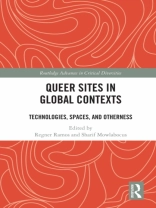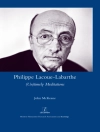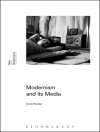Queer Sites in Global Contexts showcases a variety of cross-cultural perspectives that foreground the physical and online experiences of LGBTQ+ people living in the Caribbean, South and North America, the Middle East, Europe, and Asia.
The individual chapters—a collection of research-based texts by scholars around the world—provide twelve compelling case studies: queer sites that include buildings, digital networks, natural landscapes, urban spaces, and non-normative bodies. By prioritizing divergent histories and practices of queer life in geographies that are often othered by dominant queer studies in the West—female sex workers, people of color, indigenous populations, Latinx communities, trans identities, migrants—the book constructs thoroughly situated, nuanced discussions on queerness through a variety of research methods.
The book presents tangible examples of empirical research and practice-based work in the fields of queer and gender studies; geography, architectural, and urban theory; and media and digital culture. Responding to the critical absence surrounding experiences of non-White queer folk in Western academia, Queer Sites in Global Contexts acts as a timely resource for scholars, activists, and thinkers interested in queer placemaking practices—both spatial and digital—of diverse cultures.












